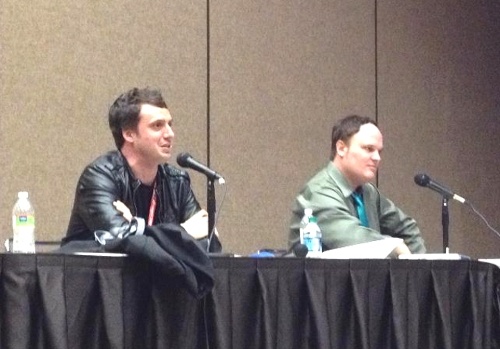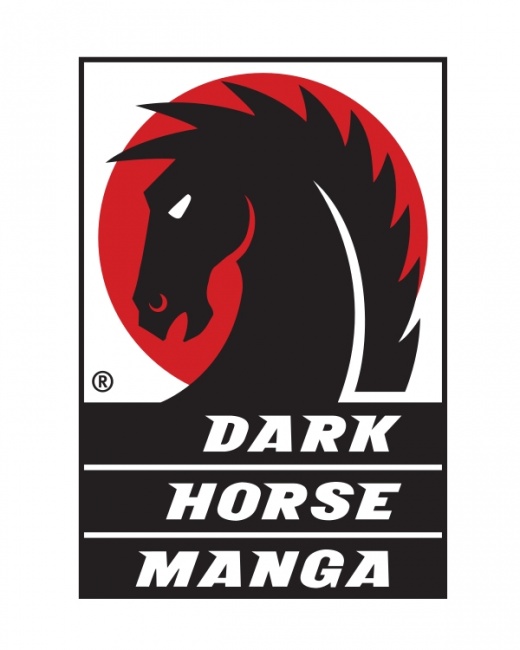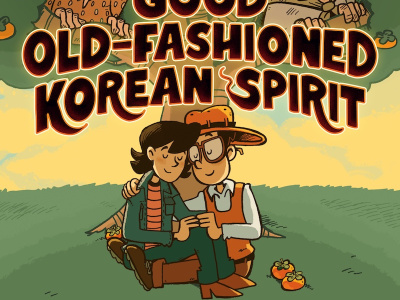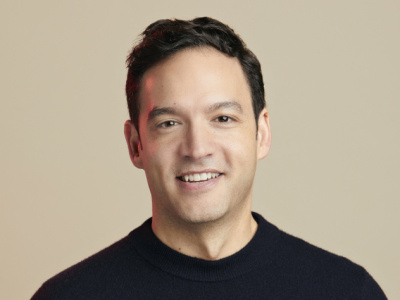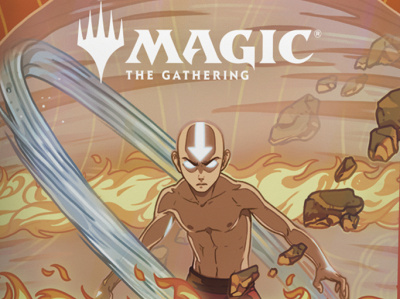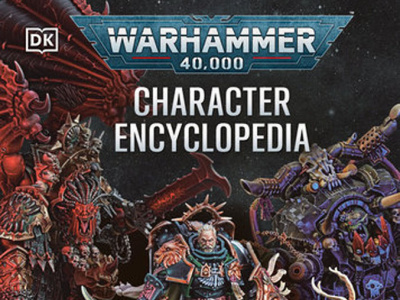We recently caught up with Dark Horse Manga Editor Carl Horn and Director of International Publishing and Licensing Michael Gombos to discuss the state of the manga market in North America. In Part 2 of our two part interview, we talk about piracy, the impact of streaming, the growing Hollywood pipeline, and Dark Horse’s 2016 releases. In Part 1, we discussed sales in the book channel, comic stores, and digital, with additional insight from Vice President--Trade Sales Michael Martens.
It seems like they’re trying to crack down on the sources of pirated material (see "Japanese Police Thwart Digital Pirates- Again!"). Are you seeing any change in competition with the scanlators?
Horn: I don’t think anything much has really changed. I think it’s pretty much the same situation it’s been for a long time. I would repeat the idea that the young people buying these books grew up online. They already know about the Internet and that there are other ways to get it and they still buy the books.
Just as I think that physical books are not going away, buying physical books is not going away either. Fans make a decision to actively participate in this culture. It’s part of the experience. They’re willing to make that decision to support these books.
Gombos: I do feel like a lot of the scanlation sites have been cooperative. The main, most culpable sites say the ‘title’s now licensed and we’ve taken it down,’ where they say ‘scanned’ until someone’s actually licensed it and then it’s actually available.
Digital delivery of anime is a more important channel for anime distribution now. It seems like I see titles getting more and more licensed by the big American streaming services like Crunchyroll. What are you seeing out there in terms of anime streaming and its impact on the manga market?
Horn: It always helps to bring awareness to manga if it’s related to anime and the great thing about streaming is it makes the anime itself more accessible than ever. Here’s an example, we started publishing the manga, Blood Blockade Battlefront, in 2011 however the anime TV show didn’t come out until last year. Because it was simulcast, we ended up reprinting five of the volumes in 2015. The power of a simulcast to bring a certain title to people’s attention is pretty strong.
Where was that on?
I believe it was on Crunchyroll. There’s no doubt about it, this is probably the best time ever to be an anime fan in terms of getting the material as it comes out in Japan.
Do you think the increased availability of streaming of anime has any connection with the recent turnaround in manga?
Horn: There is probably a synergistic effect because again it really helps to have… Blood Blockade Battlefront is from the creator of Trigun. We released Trigun after the anime had come out in the U.S. on Adult Swim, that’s where everybody knew about it. However, we released Blood Blockade Battlefront before the anime came out.
I have to say it’s often the case that people don’t even know about the manga until the anime comes out. So what happens with anime is important and streaming is a very important development because it shortens the time, the awareness. They don’t have to wait months and months for something to come out.
In publishing we have to do everything so far in advance for our solicitations. So the quicker people can become aware of those titles out there, the better. I don’t see streaming as anything but good for manga.
When we were prepping for this interview, we were struck by the number of Hollywood productions in some stage of development based on anime and manga properties. Do you have thoughts on that as a trend and how do you think that’s going to affect the market overall?
Horn: The idea that American comic books can become hit Hollywood movies, that’s well established now and it’s pretty much expected but there hasn’t yet been a big Hollywood hit based on a manga or anime, much less we haven’t yet created the production assembly line you see with comics.
Turning manga or anime into hit Hollywood films is a concept that still needs to prove itself, but having said that, you now have a generation of American directors, actors, and moviegoers who have grown up knowing about anime and manga. Let’s not forget something that happened last year in 2015. You remember President Obama had the Japanese prime minister Mr. Abe, and he publicly thanked him for various things including anime or manga, so the president of the United States said "anime or manga" at a state occasion last year. That shows you that pretty much yeah, it’s pretty much in the American culture now. So I believe the potential for a hit Hollywood movie based on Japanese properties is there and it can happen. It just hasn’t been demonstrated yet.
There was Edge of Tomorrow, based on All You Need Is Kill.
Gombos: I think you need to note that All You Need is Kill was a novel, and I think "Hey, they’re doing an Akira movie or a Ghost in the Shell movie. I have an idea, there’s already a great movie for both of those properties out and they’re called Akira and Ghost in the Shell." There’s already a full length film that’s been done perfectly for both of those. There’s no necessity to do that. The fans are going to be begrudgingly going to see it and I think some people will be attracted to it.
Horn: I think all these works in development is very exciting and I want to see where it leads but we need some demonstrated hits where people get really excited about the idea of "hey, these Japanese comics, these anime and manga can really be turned into great live action movies," the way people are now confident that American comics books can be.
The challenge is that we always need to remember is what you are adapting here is a foreign work. Marvel and DC comics were written for Americans originally. The challenge is to get that thing out of the Japanese work that is different and cool that you wouldn’t get from Hollywood and yet convey it in a way that isn’t going to have people shaking their heads and saying I don’t get it.
What is your manga release count for 2016 over 2015? What are your key releases for the year?
Horn: We’re actually increasing our Japanese titles by 35% in 2016 over 2015: 34 titles in 2015, we are putting out 46 in 2016. We may be throwing in a few more at the end of the year. It’s quite a jump for us.
The title we’re really looking forward to is I am a Hero, coming out in April (see "Dark Horse Gets Zombie Manga"). I am a Hero is important for a number of reasons. As you know the three biggest Japanese publishers of manga are Kodansha, Shueisha, and Shogakukan. We’ve published stuff from the first two but we’ve never published anything from Shogakukan. They’ve been pretty much exclusive to VIZ, so this is the first time Dark Horse has dealt directly with them.
This particular title, you might call it The Walking Dead of Japan. I know Attack on Titan has been called that, but this much more strongly deserves the comparison. It’s a zombie apocalypse story. It’s really strong in terms of action. It’s got the kind of Gantz-like quality to it. It’s graphic violence; it’s fast moving. But also critics favor it in Japan, too. If you remember a manga called 20th Century Boys, that VIZ released, won two Eisner awards in America. This came from the same magazine from Japan--the same editor. That’s something we’re looking forward to releasing in double-sized editions so people can really jump into the story. This will be 500-page volumes.
We’re starting eight new series in 2016.
Gombos: We just started one in 2015.
Horn: We’re not only expanding our output, we’re expanding our number of new books that have never been published in English before. A new series we’re starting--Danganronpa. This represents another crossover between Japanese video games and manga. One of the things to note about Unofficial Hatsune Mix is that Hatsune Miku is mainly a video game phenomenon. We’ve done very well with our video game books, especially our Japanese books. Art of Fire Emblem, Zelda: Hyrule Historia was a tremendous hit for us. That kind of crossover, we talked about how it helps to have an anime of the manga. It also helps to have a videogame of the manga. Danganronpa is like Hatsune Miku, a video game franchise. We are doing the manga series of that.
Another series we’re beginning is Fate/Zero, which is from a highly regarded franchise called Fate, which has been around for about the last decade.
Gombos: Gigantic Maxima, by the creator of Berserk, which I know does really well in the direct market and is a million seller for Dark Horse. I think that’s one that people will want to check out.
RG Veda, the CLAMP title, we have a string of CLAMP omnibuses which have been incredible for Dark Horse.
Horn: RG Veda, that was their professional debut back in the 1980s, so we are finally publishing the work from when they first broke into the market.
Anything else you’re excited about in the manga market?
Horn: We’re very enthusiastic about it, and have been for some time. When you see this expansion of titles coming out for 2016 this represents the fruit of titles we’ve been trying to get for a while. We’re trying to get things that might have been thought to be impossible for us. Breaking through to new categories all the time.
Gombos: Gantz was supposed to be impossible. Working with Shueisha was supposed to be impossible. I am a Hero was supposed to be impossible. So when they say it’s impossible, it makes you really want to do it. Because we’re Dark Horse, we’re not VIZ and they have first refusal on them.
I think it’s important, and I don’t know how often it gets talked about, and I like to bring it up because it’s what Carl and I do here, but to look at Dark Horse as a company and our bestsellers are Japanese. Our bestselling in terms of units, unit sales, dollar amount, category. You want to go by trades, it’s Lone Wolf and Cub. You want to go by art books, it’s Hyrule Historia. You want to go by novels, it’s Vampire Hunter D.
Horn: That’s been a part of our identity from the very beginning. We are the second longest publisher of manga in the U.S. VIZ started in 1987, we started in 1988. It goes way back.
Last year we just finished Oh, My Goddess, it was the longest running manga series in the U.S. market. Twenty-one years it was on the market. We did 48 volumes and the last volume was profitable. It was profitable to the end. Each individual volume was profitable and the series as a whole. There were readers who stuck with that series for 21 years. That’s pretty incredible and it predates the manga boom.
So although we’re called Dark Horse Comics, manga is a very deep part of our roots.
Click here to go back to Part 1.
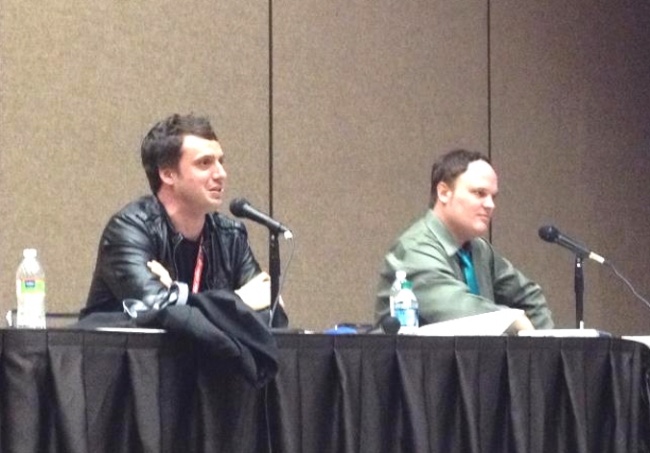
Piracy, Streaming, Hollywood Pipeline, and 2016 Releases
Posted by Milton Griepp on March 2, 2016 @ 3:44 am CT
MORE COMICS
New Graphic Novel by Creators of 'Banned Book Club'
August 13, 2025
Kim Hyun Sook and Ryan Estrada, creators of the Eisner-nominated Banned Book Club, are back with a lighter take on rebellious teens, meddling elders, and Korean traditions.
People on the Move Round-Up
August 13, 2025
Our People on the Move Round-Up reports on the new Funko CEO, a move to Penguin Random House Publisher Services, and an industry vet to Prana.
MORE NEWS
New Set Features Lots of Allies and Humans
August 13, 2025
Wizards of the Coast revealed details on Magic: The Gathering - Avatar: The Last Airbender .
Comprehensive Guide to Characters in the 'Warhammer 40,000' Universe
August 13, 2025
Penguin Random House will release Warhammer 40,000 Character Encyclopedia, a new character guide book, into retail.



